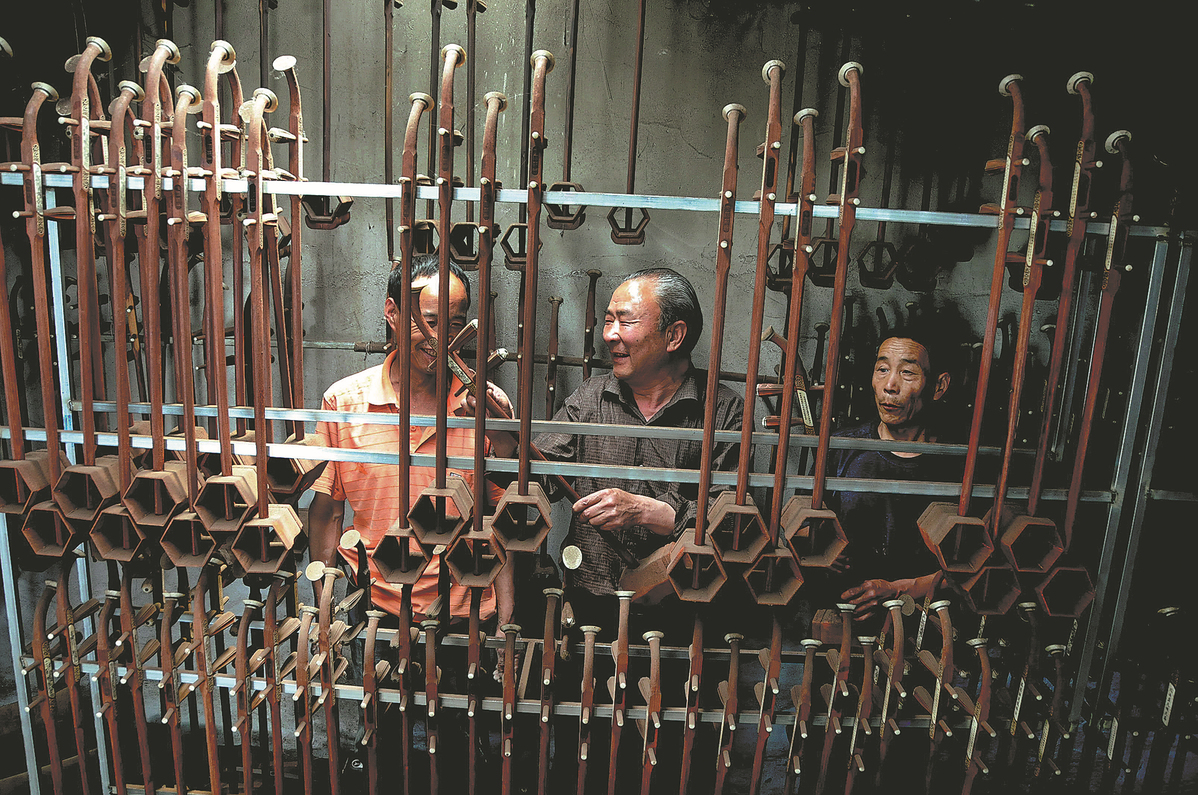Village tugs at nation's heartstrings with fine craftsmanship


As Spring Festival approaches, farmers in Yuequan village are entering the busiest season for making erhu, a Chinese two-stringed bowed musical instrument.
Gao Zhenbao, 75, started learning the technique of making erhu from his father when he was around 15 years old.
"With Spring Festival and the winter vacation for schools around the corner, there is high demand for erhu, which will be used in various performances, and training institutions are also placing orders," the villager from Yuequan, located in Tancheng county in Linyi, Shandong province, said.
The erhu-making technique of Yuequan was listed as an intangible cultural heritage in Linyi in 2014, and Gao has become an inheritor of that technique.
"Every process of making the musical instrument is done by hand," Gao said.
Over three decades ago, Gao participated in a musical instrument exhibition in Shanghai, where a customer from Henan province, impressed by his erhu-making skills, placed an order for the musical instrument.
Since then, the customer has been buying Gao's erhu every year, which Gao views as a recognition of his craftsmanship.
The village, which used to be known as Yuezhuang, was renamed Yuequan due to its growing reputation for making erhu.
"Yuequan is the trademark I registered for erhu. As more people know Yuequan through our erhu, we changed our village's name to Yuequan with the approval of the local government," Gao, whose family is capable of producing more than a thousand erhu annually, said.
The erhu they make is sold nationwide, as well as exported to countries such as Australia, Russia and the United States.
In his workshop, Gao's two sons are diligently crafting the erhu.
"Two of my grandsons can make erhu on their own, and I have another grandson in Linyi who sells erhu via e-commerce platforms," he said, adding that erhu making is a traditional business of the village.
Currently, 105 households — including 31-year-old Gao Chao's — are engaged in crafting erhu, accounting for over 85 percent of the total number of households in the village.
In Gao Chao's studio, various styles of erhu — made of different wood materials — are displayed, and he does livestreaming sessions to promote the products.




































